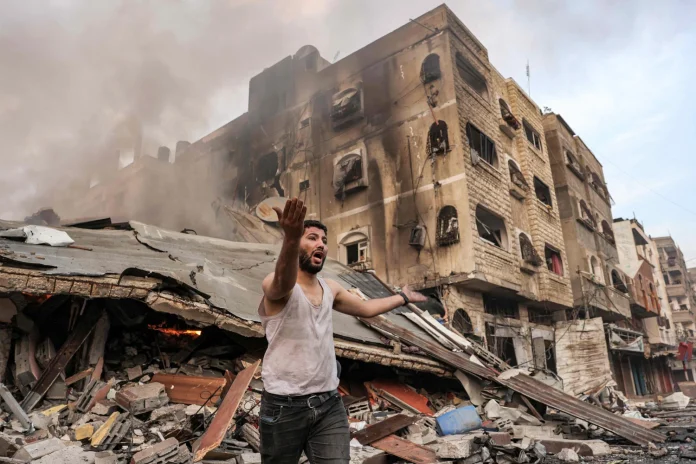On Saturday, Israeli airstrikes killed at least 32 Palestinians across the Gaza Strip, according to Palestinian health officials. The strikes came as Israeli forces intensified their siege around several hospitals in Jabalia, located in the northern part of the enclave, as part of an ongoing military operation against Hamas.
One of the deadliest strikes occurred in the central Gaza Strip’s Al-Maghzai refugee camp, where an Israeli attack on a residential building killed 11 people. In nearby Nuseirat camp, another strike claimed the lives of four more individuals. In the southern Gaza cities of Khan Younis and Rafah, five people were killed in two separate airstrikes. Meanwhile, seven Palestinians lost their lives in a strike on the Shati refugee camp in northern Gaza.
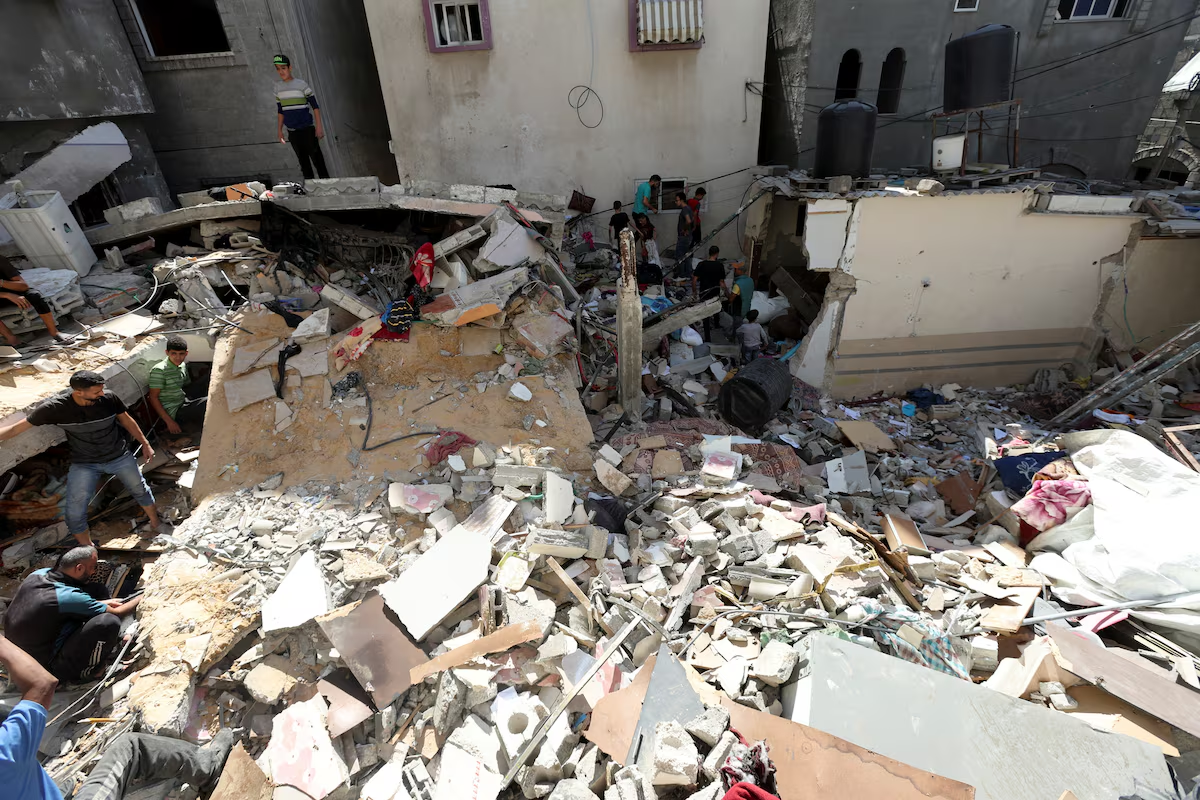
Palestinian medics reported that late Friday, 33 people, mostly women and children, were killed and 85 others injured in a series of Israeli airstrikes that demolished at least three houses in Jabalia. The Israeli Defense Forces (IDF) confirmed their ongoing operations in Jabalia, targeting what they described as Hamas military infrastructure and personnel. However, the military said it was not aware of the specific incidents reported by health officials.
“IDF troops are currently operating in the Jabalia area against Hamas terrorist infrastructure and terrorists. We are unaware of the incident,” an Israeli military spokesperson said. The IDF added that they had killed several Hamas gunmen in Rafah and Jabalia and dismantled critical military infrastructure across Gaza.
The situation in Jabalia, the largest of Gaza’s eight historic refugee camps, has grown increasingly dire. Israeli forces have encircled the camp, tightening their grip by deploying tanks to nearby towns like Beit Hanoun and Beit Lahiya. Residents have also been issued evacuation orders, which Israeli officials claim are aimed at protecting civilians by separating them from Hamas fighters. Despite these assurances, residents and medical officials in Jabalia have accused Israeli forces of bombing homes and imposing a blockade on hospitals, preventing the delivery of essential medical supplies and food.
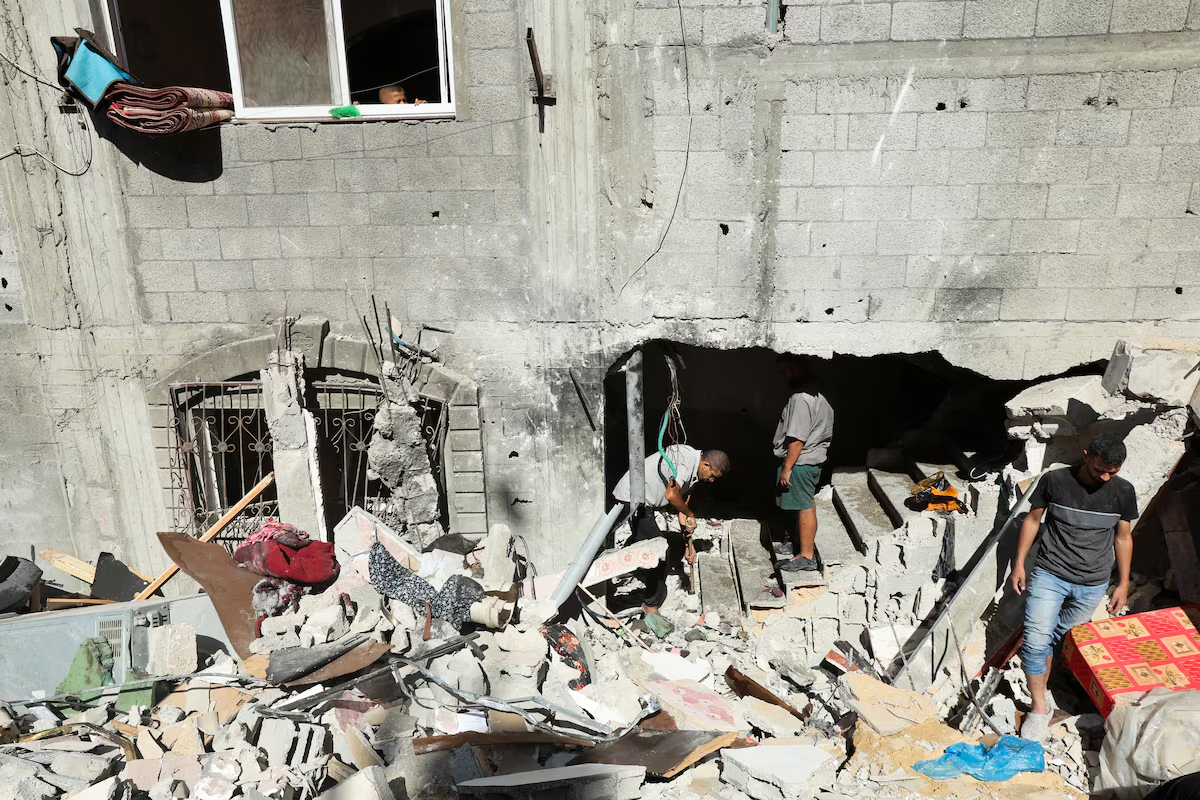
According to Palestinian health officials, hospitals in northern Gaza, including the Indonesian Hospital, Kamal Adwan Hospital, and Al-Awda Hospital, have been besieged and targeted by Israeli strikes. Medical officials in Gaza report that the hospitals are on the brink of collapse due to power outages, lack of medical supplies, and continued bombardments. The Gaza Health Ministry said two patients in intensive care at the Indonesian Hospital died because of power shortages and the inability to get vital medical resources into the hospital.
“The Israeli occupation is intensifying its targeting of the health system in the northern Gaza Strip, by besieging and directly targeting the Indonesian Hospital, Kamal Adwan Hospital, and Al-Awda Hospital during the past hours and its insistence on putting them out of service,” the Gaza Health Ministry said in a statement.
In response, the Israeli military said that troops operating in the area had been instructed to avoid harming civilians and medical infrastructure. “It is emphasized that the hospital continues to operate without disruption and in full capacity, and there was no intentional fire directed at it,” an Israeli military spokesperson said. Despite this statement, reports from the ground indicate that a nurse at the Kamal Adwan Hospital was killed along with members of his family in an Israeli airstrike on their home in Jabalia.
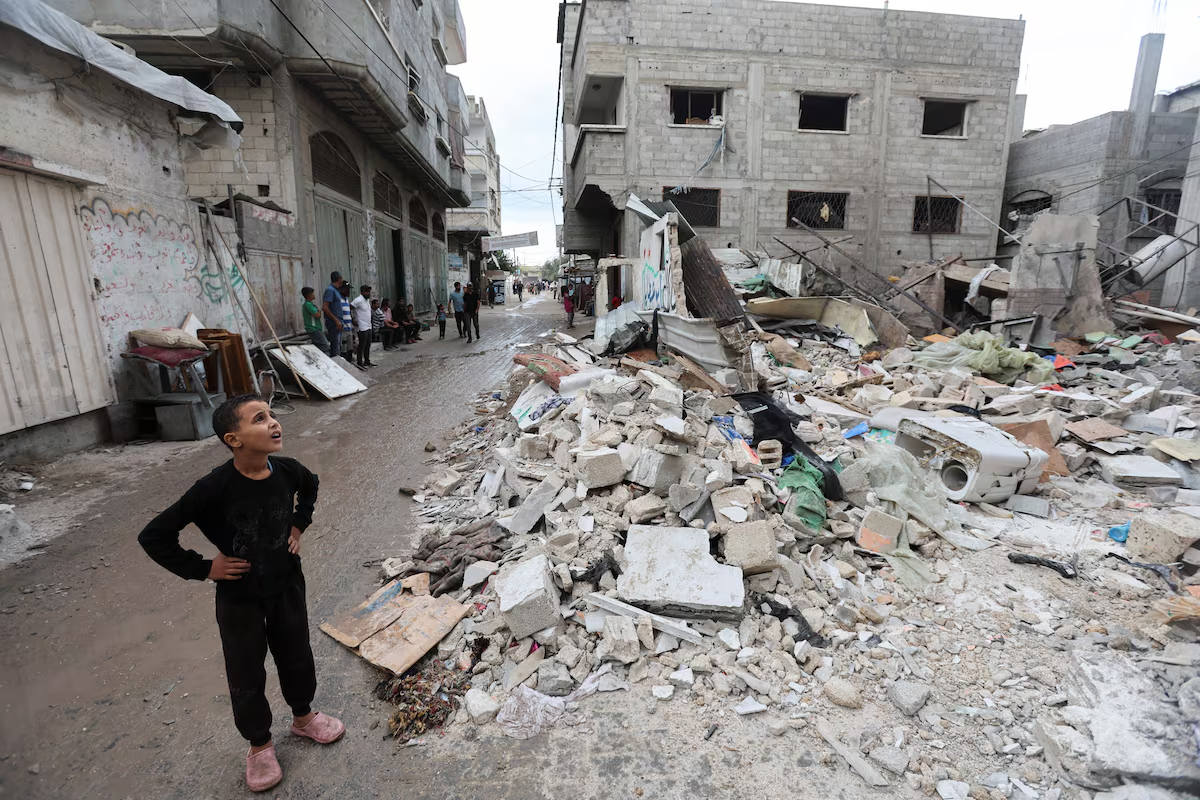
The ongoing Israeli offensive was launched in retaliation for a deadly Hamas attack on October 7, which left 1,200 Israelis dead and around 250 taken hostage, according to Israeli officials. The offensive has resulted in significant casualties in Gaza, with Palestinian health authorities reporting that more than 42,500 people have been killed since the conflict began. The strikes have devastated large portions of Gaza’s infrastructure, compounding the humanitarian crisis in the enclave.
As the conflict intensifies, international calls for a ceasefire and humanitarian assistance have grown louder. However, Israel has vowed to continue its campaign to dismantle Hamas’s military capabilities. The situation in Gaza remains extremely volatile, with both sides suffering heavy losses. The humanitarian situation is particularly severe, as thousands of civilians remain trapped in the densely populated enclave without adequate access to food, water, or medical care.
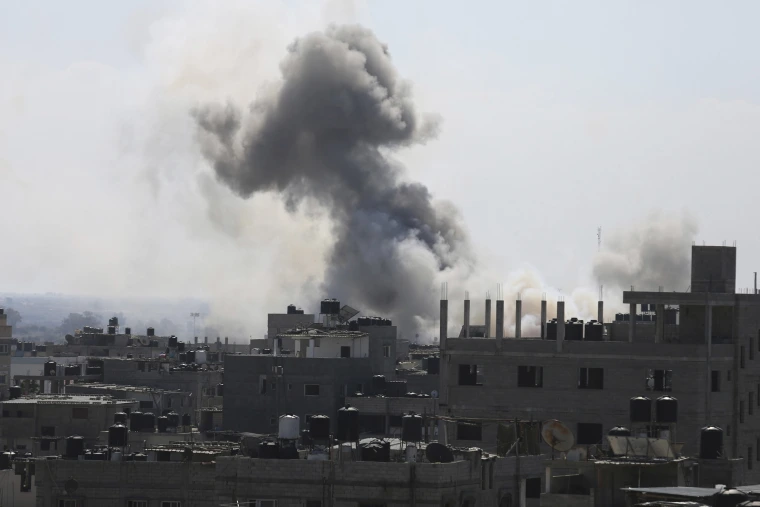
Israeli officials maintain that their operations are focused on targeting Hamas militants and military infrastructure. However, the scale of civilian casualties has raised concerns among human rights organizations and international observers, who warn that the conflict could escalate further if a ceasefire is not brokered soon. The Israeli government has so far rejected calls for an immediate halt to its operations, arguing that Hamas’s military capabilities must be dismantled to prevent future attacks on Israel.
As the conflict drags on, the toll on both Israeli and Palestinian communities continues to mount. With the Gaza Strip under siege and its healthcare system on the brink of collapse, the international community is watching closely, hoping that diplomacy can eventually bring an end to the violence.

